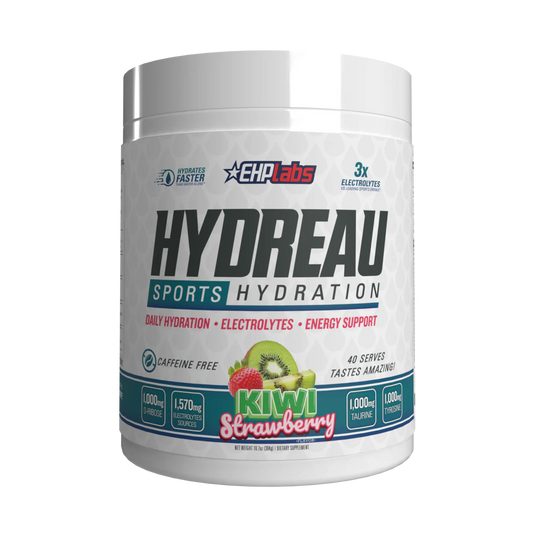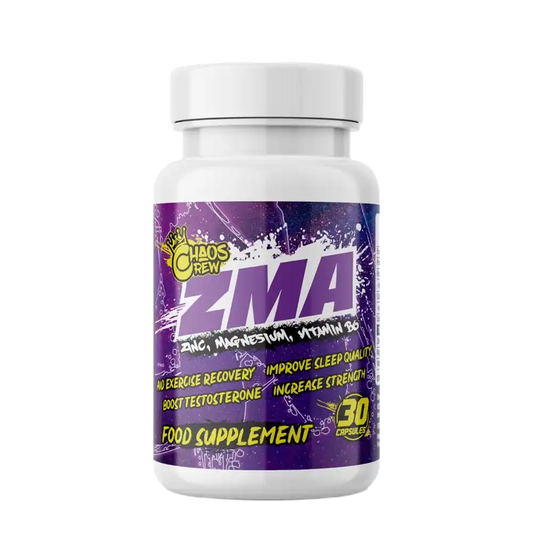Introduction: 8 Hours Isn’t Always Enough
You hit the pillow early. No screens. No noise. You even clocked a solid eight hours. So why are your eyelids still heavy at 7 a.m.? Why do you feel like you’ve run a marathon—before even leaving bed?
It’s not just you. A massive number of people report feeling tired after sleeping, and for many, it has nothing to do with how long they were in bed. Sleep quantity is only one part of the puzzle. The real question is: how good is your sleep quality—and what’s sabotaging your morning energy?
In this two-part blog, we’ll break down the true causes of morning fatigue, unpack how nutritional deficiencies, stress, poor sleep architecture, and hormone imbalances all contribute—and show you what to do about it.
1. The Myth of the "8-Hour Rule"
Let’s start with the most dangerous myth in modern wellness: “As long as you get 8 hours, you’re fine.”
Wrong. Here’s why:
-
You can sleep 8 hours and get almost no deep sleep
-
You can wake up 10 times during the night and not remember it
-
You can fall asleep stressed and never reach REM
-
You can overheat, snore, or spike cortisol while lying down
Sleep quantity is not sleep quality. If your body isn't cycling through Stage 3 (deep sleep) and REM, you're not rebuilding muscle, restoring energy, or balancing hormones.
2. Signs of Poor Sleep Quality (Even If You Sleep Through)
You might think you’re sleeping well—but these are red flags that say otherwise:
-
Waking up groggy, foggy, or headache-prone
-
Needing caffeine immediately to function
-
Trouble getting out of bed or snoozing your alarm
-
Muscle soreness that lasts all day
-
Cravings for sugar or simple carbs before lunch
These signs often point to poor sleep architecture, meaning your circadian rhythm is disrupted or your nervous system is overactive at night.
3. Morning Fatigue Isn’t Always a Sleep Issue
Yes, sleep matters—but sometimes the issue starts before you even close your eyes. Morning tiredness is often a metabolic or hormonal problem, not just a rest one.
Common culprits:
-
Cortisol spikes during the night (from stress or poor blood sugar control)
-
B vitamin deficiencies (affecting neurotransmitters)
-
Magnesium or zinc deficiency (critical for nervous system calm)
-
Poor melatonin production (from blue light exposure or stress)
-
Low iron or ferritin (especially in women)
Even your gut microbiome plays a role. When your gut is inflamed or imbalanced, it can interfere with nutrient absorption—leaving you tired even when technically “well-rested.”
4. How Your Supplement Stack Could Help—or Hurt
A lot of people don’t realise their night-time supplements can make or break their morning. Take too much melatonin and you’ll feel hungover. Skip magnesium and your nervous system never calms. Overuse stimulants and your cortisol stays high into the evening.
Smart Sleep Supplement:
✅ Chaos Crew ZMA
A high-quality blend of zinc, magnesium, and B6—this supports testosterone production, nervous system recovery, and deep-phase sleep quality.
5. Nutritional Deficiencies That Drain Your Mornings
Even if your sleep habits are solid, micronutrient gaps can leave you feeling tired on wake-up. The usual suspects?
-
Magnesium: Crucial for nervous system function. Deficiency causes restlessness and light sleep.
-
Zinc: Needed for hormone regulation and immune resilience.
-
Vitamin B6 & B12: Critical for neurotransmitter production (especially serotonin and dopamine).
-
Iron/Ferritin: Low levels reduce oxygen flow, leaving you foggy and weak.
-
Vitamin D: Affects melatonin and overall sleep/wake rhythm.
A supplement like Chaos Crew ZMA, rich in magnesium and zinc with cofactor B6, tackles many of these simultaneously.
6. Is Your Nervous System Getting Any Downtime?
You might be asleep, but if your sympathetic nervous system (fight-or-flight) is active, you’ll never feel rested.
Signs your nervous system isn’t downshifting:
-
You grind your teeth or clench your jaw in sleep
-
You wake up to urinate or shift position constantly
-
Your heart races when you open your eyes
-
You sweat at night or wake up too hot
This is where supplements like Uncle Gym’s Hydration Blends, magnesium, or L-theanine-based support can help. Hydration—especially with electrolytes like sodium and potassium—also calms the nervous system and helps avoid overnight dehydration, which is a hidden cause of AM fatigue.
7. Could It Be a Hormone Issue?
Waking up exhausted can sometimes be a sign that your hormones aren’t cycling properly. This is especially true for:
-
Men over 30 with declining testosterone
-
Women with PCOS or irregular cycles
-
People under chronic stress or poor diets
A disrupted cortisol rhythm—where cortisol is high at night and low in the morning—can completely wreck your energy flow.
Products like ZMA support hormone recovery, especially for men. For women, adaptogens (like ashwagandha or rhodiola) and magnesium are often better long-term solutions.
8. Do You Actually Need More Deep Sleep?
Not more time in bed—more deep sleep. That’s the stage responsible for:
-
Muscle recovery
-
Brain detoxification
-
Memory consolidation
-
Hormone and immune balance
If you're waking up tired, there's a high chance you're spending too little time in deep sleep, or you're skipping REM altogether.
Common disruptors:
-
Alcohol before bed
-
Blue light (phones, laptops) after 9 p.m.
-
High-stress training late at night
-
Stimulants after 2 p.m.
Products that enhance deep sleep rather than knock you out (like Chaos Crew ZMA) are ideal, especially when paired with basic sleep hygiene.
9. How to Fix the Fatigue: Timing, Habits & Supplement Stacking
Feeling wrecked after sleep doesn’t always mean your body needs more rest—it usually means your sleep cycle is off or your recovery process is incomplete. Here's how to tighten it up.
1. Time your nutrition and supplements right:
-
Magnesium/ZMA → 30–60 mins before bed
-
Protein (slow-digesting like casein) → right before sleep if you're active
-
Carbs (optional) → small portion pre-bed can help insulin assist melatonin production
-
Avoid caffeine → after 2pm (or earlier if sensitive)
2. Don’t supplement just for sleep—support your entire circadian rhythm.
That means prioritising:
-
AM sunlight exposure
-
Consistent wake times (even on weekends)
-
Post-dinner screen reduction
-
Electrolyte balance—especially if you’re waking up dehydrated or cramping
Supplements like EHP Labs Hydreau (electrolyte-rich hydration) and Chaos Crew ZMA (deep-sleep mineral formula) complement each other perfectly. One supports your day, the other your night.
10. AM Fatigue From Blood Sugar Drops: The Silent Saboteur
If you wake up with:
-
Shakiness
-
Brain fog
-
Mood swings or irritability
-
Sudden hunger
…it might not be “just tiredness.” You may be experiencing overnight hypoglycaemia—especially if your diet is low-carb, high-caffeine, or you're fasting improperly.
What helps:
-
Balanced dinner with protein + carbs + fat
-
No alcohol or sugar before bed
-
Supplements that improve glucose metabolism like magnesium and zinc (again, see Chaos Crew ZMA)
11. How Electrolytes Help You Wake Up Clearer
Most people think of electrolytes as just for training—but they’re also critical for sleep and morning energy. You lose sodium, potassium, magnesium, and calcium through:
-
Night sweating
-
Alcohol
-
High-protein, low-carb diets
-
Certain medications (like SSRIs or diuretics)
If you wake up cramping, thirsty, or with a dry mouth, it could be mineral loss—not sleep—that’s the real culprit. Adding a scoop of EHP Labs Hydreau or Naughty Boy Hydration to your water first thing can restore balance fast.
12. What If You Still Feel Tired?
If you've ruled out:
-
Poor sleep habits
-
Nutritional deficiencies
-
Dehydration
-
Overtraining
-
Poor sleep hygiene
…then it might be time to look deeper:
-
Iron/ferritin blood tests
-
Thyroid function panels
-
Sleep study for apnea/snoring
-
Cortisol/DHEA saliva test
But before jumping to bloodwork, make sure you’ve optimised the low-hanging fruit. Many people feel energised within 7–10 days of adjusting:
-
Bedtime routine
-
Mineral intake
-
Supplement timing
-
Meal composition before bed
13. The Ideal Sleep Stack (Without Going Overboard)
You don’t need 10 products. You just need the right ones. Here’s a well-rounded, safe stack designed to improve your sleep depth and morning clarity:
|
Goal |
Product |
Timing |
|
Deep Sleep |
45 min before bed |
|
|
Hydration Recovery |
AM + Post-training |
|
These products stack well without redundancy. Magnesium, zinc, and B6 work synergistically, and none contain harsh sedatives or groggy-making melatonin.
14. FAQs – Why You're Waking Up Tired (Even With Sleep)
1. Why do I still feel tired after 8 hours of sleep?
You may be missing deep or REM sleep phases. Factors like stress, magnesium deficiency, poor hydration, or stimulant use can all reduce true sleep quality—even if you're unconscious for 8 hours.
2. Can low magnesium make you tired in the morning?
Absolutely. Magnesium is vital for muscle relaxation, neurotransmitter balance, and sleep depth. A deficiency causes light sleep and frequent waking. ZMA blends like Chaos Crew's help fix this.
3. Is waking up groggy every day normal?
It's common, but not normal. Morning grogginess usually means cortisol and melatonin aren't cycling properly. You may need to improve your bedtime routine, cut caffeine earlier, or support circadian rhythm with supplements.
4. Are there supplements that help reduce morning tiredness?
Yes—especially ones that target mineral balance, cortisol regulation, and deep sleep. Chaos Crew ZMA, EHP Labs Hydreau, and Naughty Boy Hydration are all powerful options to include.
5. Should I take a sleep supplement every night?
It depends. Mineral-based products like ZMA can be taken daily. But for anything containing melatonin or sedative herbs, it’s best to cycle off every 3–4 weeks. Think of supplements as tools—not crutches.




